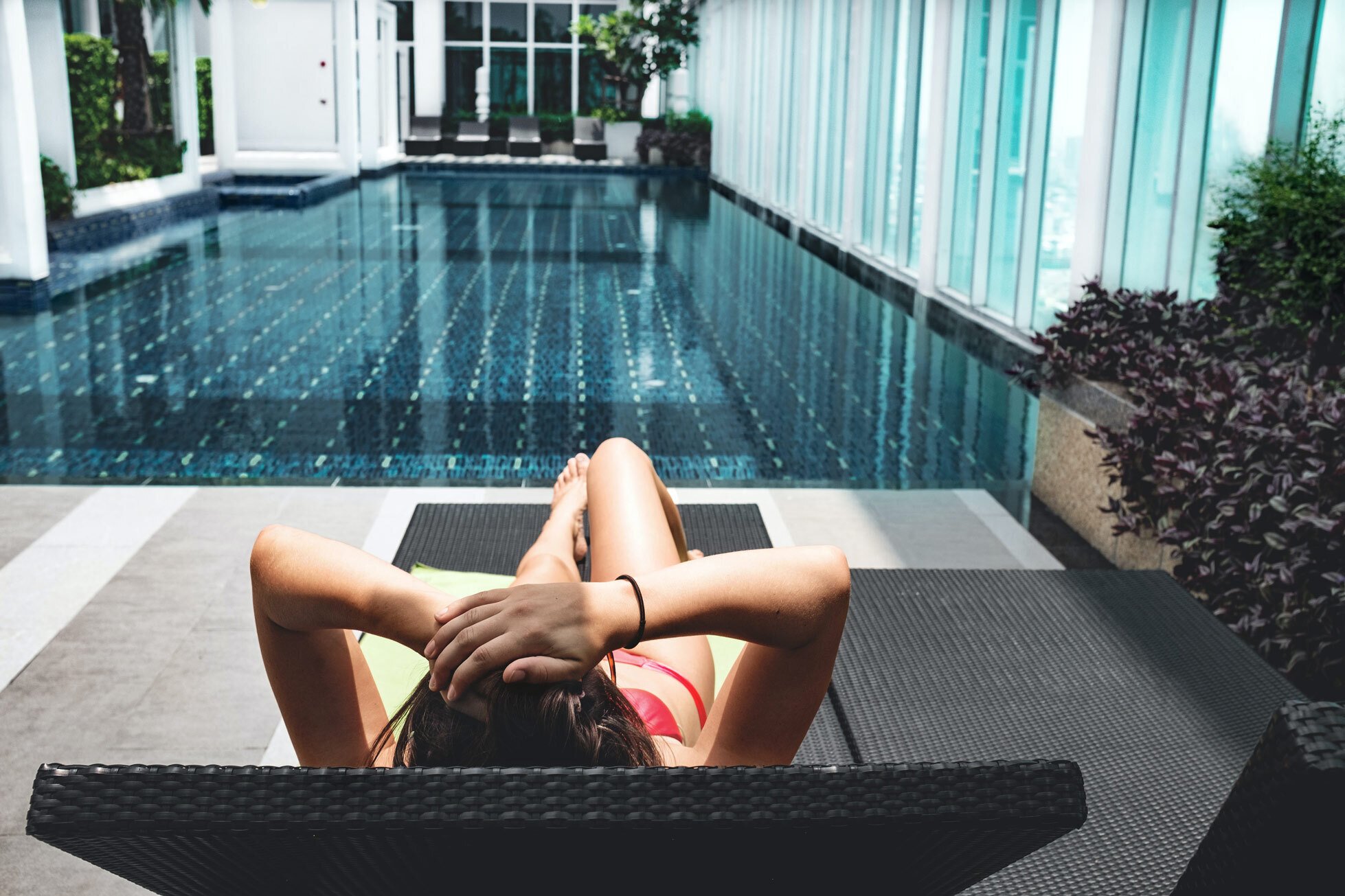The importance of sun protection in any skincare routine has been hard-drilled into our psyches. But what, exactly, will sunscreen contribute to the ultimate preservation of our skin? And what ingredients improve its efficacy? To better understand the pertinent details, we spoke with Dr Sam Bunting of the prestigious Harley Street clinic of the same name. Her thoughtful and straightforward approach has led to her becoming the go-to dermatologist for those seeking to remedy hard-to-treat conditions such as rosacea and acne.
Below, she imparts her wisdom about the necessity of proper sun care.
The why
Everyday use of sunscreen will not only prevent future damage to the skin, but it will help correct wrinkles and damage that is already there. ‘Sunscreen is the one ‘anti-ageing’ product everyone should be using daily—it’s now proven to not only prevent future premature ageing but actually to improve existing wrinkles, pigmentation and texture. Because it turns out if you free skin up from the ‘distraction’ of needing to protect itself from UV rays, it gets down to the business of repair,’ says Dr Sam.
SPF matters
The NHS currently advises of an SPF of ‘at least 30 to protect against UVB.’ Dr Sam concurs. ‘People typically under-apply sunscreen, so the higher the protection level, the better. It builds in a degree of safety.’ It is not only the UVB rays that are harmful, however. ‘I always recommend broad-spectrum SPF50 sunscreen which protects against both the burning UVB rays and the ageing UVA rays—look for the UVA symbol in a circle to know that you’re properly covered,’ she states.
There are many broad-spectrum options, and comfortability is definitely a factor. Applying sunscreen should be a daily ritual; indeed, it is the most vital product you put on your skin. ‘Ultimately, the best sunscreen is the one you like wearing,’ Dr Sam says.
Breakout-free
Prior complaints about sunscreen oft involved the possibility of a breakout. Mineral sunscreens sit atop the skin, trapping oil and build-up underneath; chemical barriers can irritate. Dr Sam recommends choosing one that clearly states non-comedogenic. ‘That means the sunscreen formula has been carefully crafted to avoid pore-blocking ingredients,’ she says. ‘I love zinc oxide for its highly effective broad-spectrum UVA protection and its low irritation potential. It’s excellent for sensitive skin. And, I recommend avoiding fragrance and alcohol in their sunscreen as they can irritate skin and lead to a dull, dehydrated complexion.’
Maintaining adequate coverage while remaining breakout free was much of the focus Dr Sam put into her Flawless Daily Sunscreen. ‘I worked incredibly hard on the texture to ensure that it wouldn’t leave a greasy film of white cast behind on the skin. In turn, it’s become a make-up artist’s favourite as it gives skin a glowy, primer-like finish—meaning it is perfect under make-up. It also contains niacinamide, which helps calm blemish-prone skin. I think of it as a serum with sun protection.’
UVA + UVB
UVA rays penetrate deeply and are the ones in which cause cancer, whilst UVB rays affect the superficial layers of the skin and cause the most physically apparent damage (tan, wrinkles). It’s imperative to use a sunscreen that protects against both types. ‘For everyday wear, we really care about UVA protection, as these rays are present all year-round and they penetrate through glass. And in summer, we really care about UVB protection as these protect us when we’re outdoors from UVB rays and sunburn,’ Dr Sam says.
The application is crucial. ‘Remember to apply generously—studies show that it is not uncommon for consumers to apply only a quarter of the required amount to deliver the protection level promised on the bottle. And always reapply. No sunscreen lasts all day, whatever claims brands like to make. You should reapply every two hours and even more often if sweating or swimming. Also, take care not to miss parts of the face. A recent study shows that skipping areas of skin, like the eyelids, has a real impact on skin health. I always recommend applying your first layer of sunscreen indoors, naked in front of a mirror to make sure you’re covered from head to toe. A shot glass full amount (30ml) is a good guide. For face and neck, use a half teaspoon.’
Members are entitled to an exclusive benefit from Dr Sam—please enquire with your lifestyle manager.

















